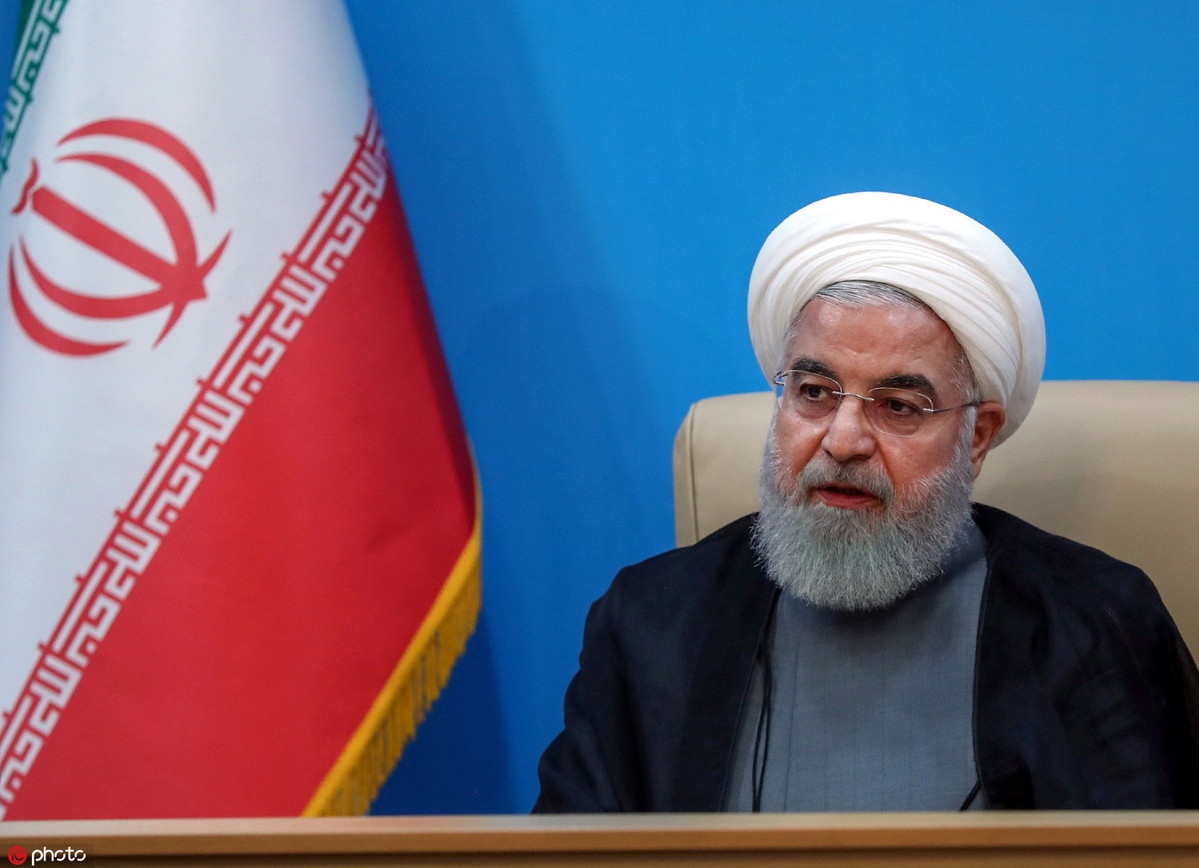A US-Iran military conflict unlikely
By Liu Jianna | China Daily | Updated: 2019-09-10 07:06

Editor's Note: Iran announced on Friday that it would stop implementing some of the provisions of the 2015 nuclear deal with major powers to continue its nuclear research and development program. This is Iran's latest move to withdraw from the nuclear deal amid escalating tensions with the US. Two experts share their views on the US-Iran standoff with China Daily's Liu Jianna. Excerpts follow:
Stalemate to continue for the time being
Iran is relinquishing its commitments to the nuclear deal and rebooting its nuclear program bit by bit in a bid to force the United States to back down and ease the sanctions. The International Atomic Energy Agency (IAEA) confirmed on Monday that Iran was installing advanced centrifuges, saying it had "verified that the following centrifuges were either installed or being installed... : 22 IR-4, one IR-5, 30 IR-6 and three IR-6". And despite France's efforts to mediate between the US and Iran, Teheran is unlikely to accept Paris's proposal of a $15 billion letter of credit in exchange for its full compliance with the nuclear deal. The reason is simple: agreeing to the proposal is tantamount to Iran disarming itself.
The US president claims he doesn't seek for Iran's regime change, but what Washington is driving at is nothing less than forcing Teheran to commit suicide. The 12 demands US Secretary of State Mike Pompeo put forward last year, which include Iran scrapping all missile programs, ceasing regional expansion, not supporting Hezbollah and Hamas and not opposing Israel, basically mean Iran's complete surrender. Which Iran will never accept.
The security team that helped the George W. Bush administration has become the main force prompting the incumbent US administration to adopt a more aggressive approach toward Teheran. Believing that Iran's expansion in the Middle East could threaten the security of its main allies Israel and Saudi Arabia and pose a challenge to the US' hegemony in the region, the US administration deems it necessary to push Iran into a corner.
Furthermore, the US administration has strengthened its ties with Israel and Saudi Arabia. Besides, by increasing pressure on Teheran, Washington could persuade Riyadh to purchase more US weapons, which could help boost the US' manufacturing sector.
The US-Iran standoff is expected to last for a while, but both sides will avoid a military confrontation. Iran hopes a Democratic Party candidate wins the 2020 US presidential election because Democrat president Barack Obama had signed the 2015 Iran nuclear deal, while the US aims to force Iran into giving unprecedented concessions by threatening military action against and imposing the most serious financial sanctions on the country.
Ma Xiaolin, a professor at Zhejiang International Studies University
Third-party mediation needed more than ever
Despite Iran reducing its commitments to the nuclear deal and the US tightening sanctions on Iran, the situation in the Middle East has not gone out of control. The US intends to prolong the stalemate till Iran can no longer endure the economic pain, and Iran is putting up a strong façade thanks to the pressure from the opposition forces at home. Yet the tools that Iran could wield to counterattack the US are indeed few.
So Teheran has adopted an approach of gradually putting pressure on the US and its allies. But neither Iran nor the US wants a military confrontation.
France inviting Iranian Foreign Minister Mohammad Javad Zarif to the G7 Summit was quite a diplomatically significant move. It shows European countries such as France and Germany are becoming more independent as far as their foreign policies are concerned and more freely voicing their views on global and regional affairs-a development that is expected to strengthen in the near future.
Indeed, the Middle East situation demands more effective third-party mediation, because preventing the situation from getting out of control not only suits the interests of the US and Iran but also other countries. Still, expecting the other signatories to the Iran nuclear deal to take concerted action would be impractical because not all of them would risk angering the US.
So the stalemate will continue for some time. And domestic politics will largely determine the US' next move toward Iran.
Li Weijian, a senior research fellow at the Center for West Asian and African Studies, and the Institute for Foreign Policy Studies, Shanghai Institutes for International Studies
The views don't necessarily represent those of China Daily.
























